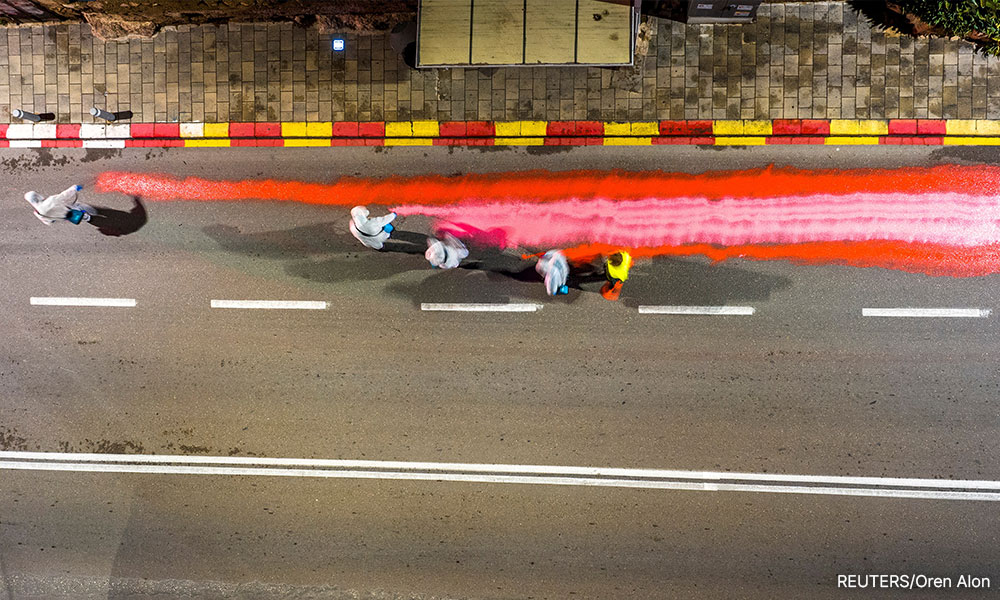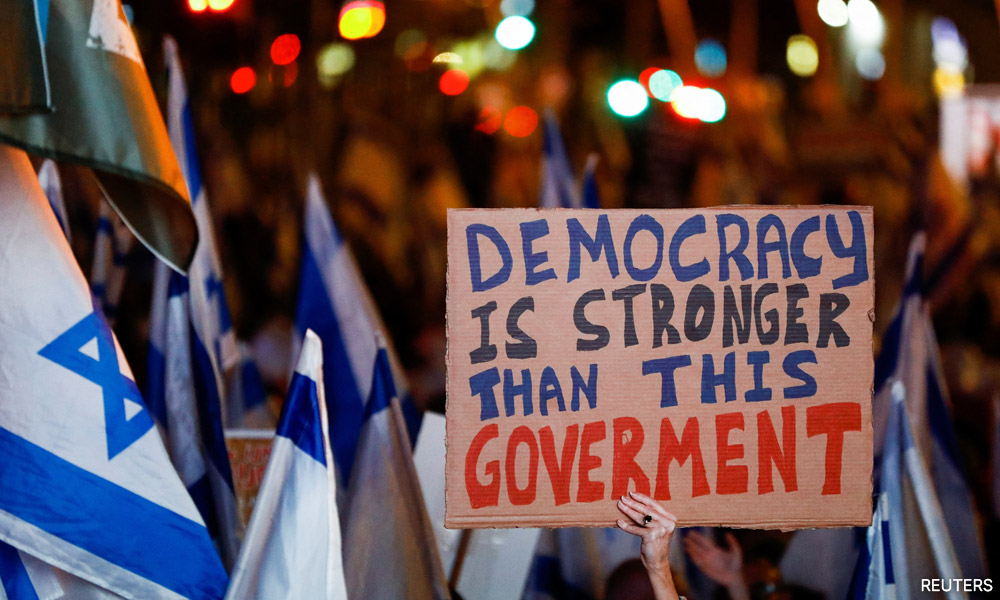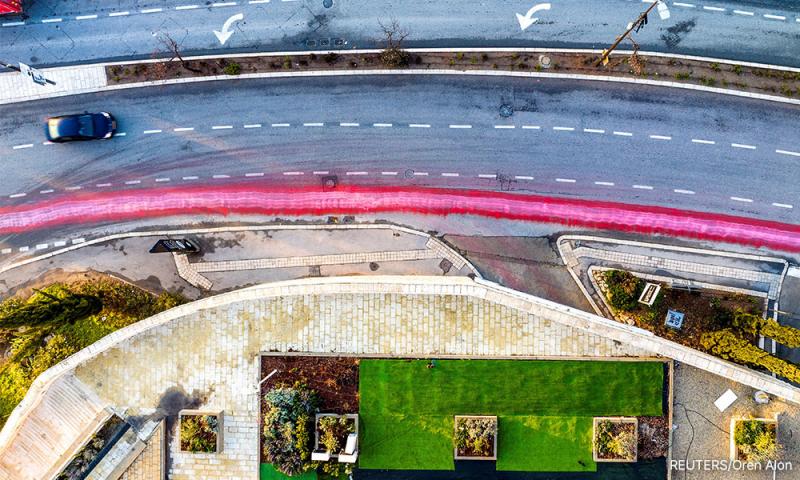Israeli protesters paint 'red line' leading to Supreme Court
Jerusalem woke on Thursday to the sight of a long red line painted by protesters along roads leading to Israel's Supreme Court, hours after Prime Minister Benjamin Netanyahu rejected a compromise deal for his government's planned judicial overhaul.
Police said they had arrested five people who had disguised themselves as workers to carry out the protest action overnight.
Drone footage showed a small group of people in protective suits spraying a wide red stripe along mostly deserted roads leading from a police and magistrate's compound up to the Supreme Court in central Jerusalem.
A slogan stencilled in red onto the road in Hebrew, Arabic and English by the side of the road read: "Drawing the line."
The hard-right government's drive to limit Supreme Court powers while increasing its own power in selecting judges has caused alarm in Israel and abroad about the country's democratic checks and balances as protests have swelled for weeks.
In what they dubbed "a day of resistance”, demonstrators blocked roads around the commercial hub Tel Aviv and in other cities.

At the Haifa port a few flag-toting protesters on boats, including former navy personnel, tried to block docking lanes.
"We are here to protest our democracy, our country, because we feel that our country is under the brutal attack of the government, the Israeli government," said choreographer Renana Raz in Tel Aviv.
Netanyahu, upon departing late on Wednesday for a state visit to Germany which has voiced concern over the judicial plan, said a proposed compromise outlined by President Isaac Herzog would not restore balance to the branches of government.

His nationalist-religious coalition says the Supreme Court too often overreaches and intervenes in political matters it has no mandate to rule on. Defenders of the court say it is a bastion of democracy, protecting rights and liberties.
Economists, legal experts and former security chiefs have warned that the judicial plan, which has yet to be written into law, will wreak havoc on the country's economy and isolate Israel internationally.
Netanyahu, who is on trial for corruption charges he denies, says it will strengthen democracy and boost business. Members of his coalition driving the changes hope to win parliament's final approval of them by April 2.
- Reuters
RM12.50 / month
- Unlimited access to award-winning journalism
- Comment and share your opinions on all our articles
- Gift interesting stories to your friends
- Tax deductable

 Reuters
Reuters